#Naruto ending
Text
Dissecting Naruto’s Ending in Good Faith
Let's consider the possibility that Kishimoto's ending was deliberate—that things ended how they should've, and some plots weren't mistakes (looking at you, Kaguya).
Okay, hear me out. By assuming this, we can explore the series with a good-faith reading. Recently, I’ve been reflecting on the series as an adult, and it’s shaken up many of my beliefs and perceptions—it's somewhat distressing, so I’ve been processing all this in therapy too, and coming to key conclusions. I think It's crucial to understand the motivations behind Kishimoto's choices, not just within the Narutoverse but also within the Kishiverse. Why did he make the decisions he did?
Why did he suddenly introduce reincarnations and fate? Aliens? Why the couples that seemingly came out of nowhere? Why doesn't Naruto quite change the system, or help the Hyugas? The final arc, overall, just seemed quite jarring, with some plots (like fate) seemingly subverting the message of the series.
I wonder, then, if Kishimoto's ending shows more of a realistic world rather than an idealized one. Reality often unfolds messily and sadly, devoid of perfect resolutions. Whether intentional or not, Kishimoto's storytelling may reflect his acknowledgment of the imperfect nature of existence. His reality bleeds into his creation, and he's subject to the same harsh realities his characters face.
Fate, Justice, and Change
In this unideal depiction, Naruto and Sasuke's actions are tied to fate rather than free will, Sasuke doesn't achieve his revolution, Naruto doesn't dismantle the shinobi system, and both end up in marriages that seem sudden and unsatisfactory.
If Kishimoto indeed intended this, why? Well, change often takes time, and sometimes change doesn’t even happen at all. People can become tired of fighting for a cause in certain ways, and settle for smaller victories. Relationships may not always align with desires, leading to compromises for convenience.
It's intriguing that Kishimoto explores themes of defying fate while ultimately making Naruto destined to save the world anyway. By making even the protagonists constrained by destiny, Kishimoto echoes historical cycles of rise and fall. Perhaps there's something inevitable about human love and hatred. We can begin to see Kishimoto's philosophical musings on how the universe came to be—the First Cause theory, that there's a divine Creator behind the universe. Or, perhaps, no matter the circumstances or our destinies, we must try to make our own decisions.
And, Sasuke's lack of revolution may not be a complete surrender. He doesn't fully support the system, remaining detached from the bureaucratic and familial norms by traveling. He pursues justice by roaming the world as a vagabond, championing justice as a vigilante. Sasuke has never been one to adhere strictly to Konoha's rules; he eschews the headband and prioritizes loyalty to his morals and loved ones. His rebellion does not manifest as he initially envisioned because his youthful idealism inevitably wanes. But this doesn’t take away from his fight, because Kishimoto portrays him as insightful and intelligent, showing that Sasuke can recognize the pragmatic benefits of partial conformity. He forever remains committed to his pursuit of justice by traveling and aiding others. Thus, his true surrender lies in acknowledging that he can be loved without compromising his strength, refuting the notion of love as a weakness.
As for Naruto, he isn't ignorant—he does comprehend the situation fully, sharing a deep understanding with Sasuke that transcends words (“I know your heart, and you mine” telepathic conversations). While it doesn't seem like much has changed, the events in Boruto unfold merely two decades after Naruto's era, a short span in historical terms. Significant societal transformations typically require centuries, not mere decades. Nevertheless, Naruto succeeds in establishing an era of peace, which Kishimoto shows through the relatively low stakes in Boruto. And when there are threats, they often manifest on a cosmic scale involving gods and extraterrestrial beings. While Naruto and Sasuke have brokered peace among nations, they acknowledge the inevitability of conflicts and warfare. Naruto's focus shifts towards fortifying the system itself, striving for safety within the constraints of reality.
Unexpected and Reluctant Couples
To thoroughly analyze the series, we must also examine the role of romance, as Kishimoto's introduction of romantic pairings significantly impacts plot themes, character development, and motivations. Whether we embrace it or not, these pairings alter the essence of characters in ways previously unseen.
In the canon material (manga and anime main story only), Sasuke and Naruto exhibit no romantic interest in Sakura and Hinata throughout the series. In fact, neither actively pursues romance in general. Sasuke states as such to Kakashi, and Naruto tells Jiraiya he’s not interested in girls. While Naruto initially does have feelings for Sakura, he eventually relinquishes them. Both protagonists prioritize their ideological missions above all else, with exceptions made for their friendship with each other. Sasuke, for instance, abandons his vendetta against Itachi when he sacrifices himself for Naruto in the Land of Waves, while Naruto is willing to forsake his dream of becoming Hokage to die to save Sasuke from loneliness and hatred.
So, how does Kishimoto portray their eventual marriages? Sakura pursues Sasuke persistently, repeatedly confessing her feelings until he ultimately relents and agrees to a family life with her. Meanwhile, Naruto displays no romantic interest in Hinata, even disregarding her confession during the battle with Pain. When he eventually marries her and starts a family, it feels contrived and dispassionate, a jarring image contrasting the boisterous Naruto we know. These relationships seem to emerge out of duty and resignation rather than genuine affection. Both Sasuke and Naruto appear worn down by their wives' persistence, leading them to reluctantly accept their marriages.
These couples have sparked considerable debate within the fandom, and rightly so, because they are not healthy or truly romantic relationships; rather, the depiction reflects the harsh realities of many real-life relationships. Kishimoto portrays Naruto and Sasuke's marriages with little prior development; perhaps a deliberate narrative choice rather than an oversight, highlighting their dissatisfaction through their roles as absentee fathers.
And in terms of specifics, Naruto's marriage seems to revolve more around Hinata than anything else. Consider this: why is Naruto portrayed as uncharacteristically serious and subdued when interacting with Hinata? Even during the pivotal moment when he finally confesses his love to her, his demeanor remains stoic and solemn. Where is the goofy and expressive Naruto we know and love? Additionally, why does Kishimoto include comments from other characters urging Naruto to "treat her well"? Because Naruto's marriage is not primarily about him; Hinata simply happened to be there, and it’s his duty to follow up on that.
And for Sasuke, why do we see panels like the family dinner in Boruto where Sasuke appears utterly miserable? Why is Sasuke never around? Why didn’t Kishimoto even give them a kiss scene? Why does Sasuke mostly display emotions when he's engaged in combat or interacting with Naruto? It's because Sasuke finds purpose and vitality in fighting for his beliefs, and Naruto is the only character depicted by Kishimoto who truly understands Sasuke's innermost thoughts and feelings. Sakura doesn't get Sasuke's essence. Isn't a marriage supposed to be built on true understanding, and progression?
One way we can see it is, Kishimoto, as an artist, is deliberate with his drawings, and these details are not mistakes. Canonically, both Sasuke and Naruto are depicted as tired or subdued in their relationships. Despite Kishimoto drawing them blushing in various situations before, neither of them ever exhibits such reactions when interacting with their wives. This deliberate choice by Kishimoto, despite them being his beloved main characters, shows that Sasuke and Naruto are not in love with Sakura and Hinata.
Love and (lack of) Romance
Sasuke and Naruto are not portrayed as romantic individuals; rather, they are depicted as traumatized fighters and idealists driven by a desire to change the world.
Kishimoto remains true to this characterization throughout the series, extending into Boruto. While Naruto is largely a series about love, it's not focused on romantic love. Instead, it delves into the concept of transcendent love and optimism amidst adversity, encompassing love found in seeking revenge, striving to change the world, and fostering bonds of friendship and loyalty. The relationship between Naruto and Sasuke is the one Kishimoto gives the most development to in the series, and embodies nuances of love, rivalry, loyalty, and compromise. This love isn’t necessarily romantic, but it can also be anything because it is transcendent love. This part is up to you to decide and I believe doesn’t take away from their story either way.
Another question that arises is, does Kishimoto really just suck at writing romance? Well, not really. He’s demonstrated his ability to craft compelling romances, such as those between Minato and Kushina, and Asuma and Kurenai. However, he chose not to apply this to Naruto and Hinata or Sasuke and Sakura. Although, he does show that Sasuke cares for Karin at one point, even awakening a new power for her, but takes it back as their relationship ultimately falls victim to Sasuke's madness at the time (although I believe this relationship, along with Naruto x Sasuke, can tentatively be argued for, but I digress for now).
These decisions reflect 1) the fact that Naruto and Sasuke's characters are not about romantic love; their goals and convictions for justice are prioritized above all else 2) Hinata and Sakura are not The Ones for them. Thus, their seemingly unhappy relationships serve as a reflection of their de-prioritization of romantic love in favor of their greater missions.
Further, realistically, people don't always end up with their ideal partners. Many people settle in relationships because they desire families or because they are pursued by others, rather than actively seeking out their soulmates. Kishimoto chooses to depict Naruto and Sasuke with a lack of emotional expression with their respective spouses. Even in the presence of their own children, Naruto and Sasuke are not depicted with joyful expressions, suggesting a lack of fulfillment in their familial roles.
The Whitepill
Ultimately, the way things turned out seems disheartening at first because shows are meant to inspire and provide an escape from reality. Throughout the series, Kishimoto led us to believe in the possibility of an ideal ending, where change is attainable and love conquers all.
But, Kishimoto's decision to depict Naruto and Sasuke's inability to achieve 100% of what we desire is, in fact, profound. The truth is, we can't always get exactly what we want, but we can make small compromises and strive for justice in whatever ways we can. This struggle is something humanity has faced throughout its history. Our world is far from ideal. But, we are still able to achieve bits of justice in ways we can; we get just enough to keep us going, to leave us with the thirst for more.
Perhaps Kishimoto portrays Sasuke's surrender not because he believes Naruto is unequivocally right, but because Sasuke wants to choose love, and is inherently kind and idealistic. He cares deeply about his friend and desires to see positive change in the world. Sasuke's journey leads him to become a protector of not just Konoha, but all villages, reflecting his compassion for people everywhere.
Similarly, Kishimoto may depict Naruto continuing on as part of the existing system not because Naruto is complacent, but because he's someone who seeks to work within established frameworks rather than tearing them down completely. This approach doesn't diminish Naruto's convictions or his commitment to change; rather, it reflects his pragmatic approach to achieving his goals while minimizing disruption.
Naruto and Sasuke's best efforts serve as inspiration for us to take up the mantle and continue the fight.
Ideal World and Optimism
Despite this, Naruto’s ending does not really make sense in an ideal world. In an ideal world, there would be a more perfect compromise, we wouldn't be bound by our fate, and the oppressive shinobi system would be dismantled. Naruto and Sasuke would have more time to heal and explore the world alone, and eventually find fulfillment in their love lives; Sasuke would find someone who truly understands him, while Naruto would enjoy a relationship where he can be his true, expressive self. Sakura would be able to move past her childhood infatuation and grow personally, while Hinata would gain confidence and develop her own identity.
Therefore, reading from a purely Narutoverse standpoint, the issues I mentioned do, in fact, undermine the themes and relationships built over the course of the narrative. Maybe Kishimoto fumbled after all, and Boruto sucks, and is simply a cash grab. Or, he intentionally wanted to troll us—suddenly breaking all conventional storytelling rules is suspicious, right?
Perhaps what really happened is a mix of all these things. While there are many external influences that led to this bleak ending, Kishimoto's intentions surely play a vital role.
Regardless, Kishimoto's big mistake is being too subtle and abrupt in introducing the new concepts at the end. However, in doing so, he has successfully sparked ongoing disagreement and discourse that persists even a decade after the series concluded.
In this sense, he has effectively brought attention to the messages: make love, not war; seek change, not complacency; and find The One, don’t settle. And even if I’m wrong in everything and this whole essay is just a copium, it's a lot better to believe in my ideals than to accept defeat. Because, Naruto taught me one invaluable lesson—no matter the odds, never give up.
#thoughts#I finally broke and wrote down all my thoughts#naruto meta#meta#naruto#sasuke#konoha#naruto ending#naruto analysis#essay#naruto essay#pro sasuke#pro naruto#anti sasusaku#anti naruhina#media analysis#writing#mine#op#my essays
92 notes
·
View notes
Text
All right yo, Kizuna Hikari by YoungAndOverIntelligent on AO3 has literally ruined me. That fic was absolute perfection and I NEED something similar. PLEASE for the love of everything, recommend me similar fics. Narusasu, Sasunaru - but things that have a similar vibe. I am begging y’all. 😭
#sasunaru#narusasu#naruto ending#Naruto#naruto uzumaki#sasuke uchiha#sasunarusasu#narusasunaru#naruto x sasuke#sasuke x naruto#boruto#naruto fic#narusasuficrec#sasunaruficrec#naruto x sasuke fic rec#ao3 fanfic#naruto uzumaki x sasuke uchiha
66 notes
·
View notes
Text
naruto and sasuke smiling at each other ☀️🌙



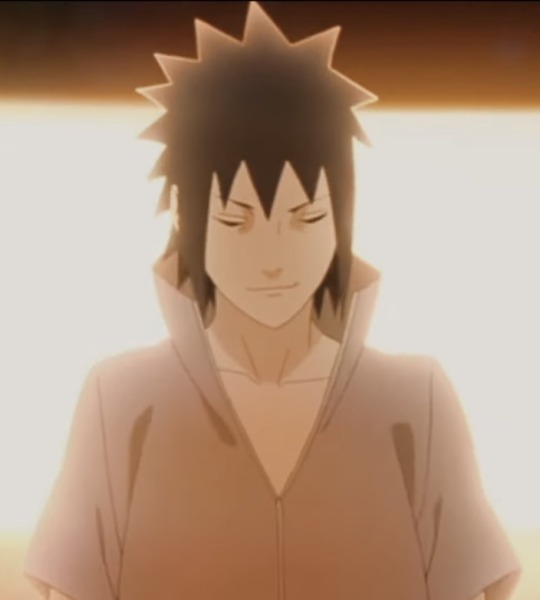

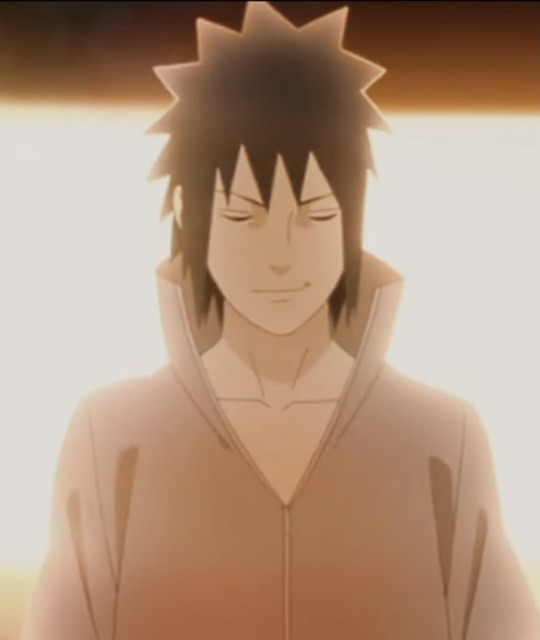
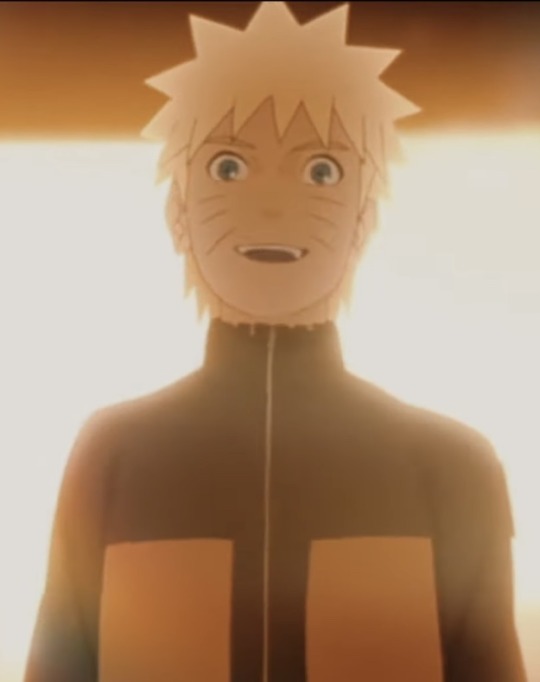

478 notes
·
View notes
Text
What is the thing with Naruto fandom always distorting the main plot of the story? I just saw a Sasuke stan saying that Sasuke should have destroyed Konoha because that was the whole point of the manga. I mean really, that's what you think the story was about? Destroy Konoha?
15 notes
·
View notes
Note
Do you ever think about the huge, HUUGGEEE divide between Kabuto and his brother, Urushi? Not just in the physical sense but also in like, the metaphorical/experience sense, or is it just me?
Assuming Urushi is actually normal, which let's be honest, he's probably on the same level as Sakura's "normalcy", what the FUCK can Kabuto talk to Urushi about that doesn't feel like he's hiding something all the time??
Can't really talk about your fucky little Frankenstein experiments, your complicated relationship with your weird, snake pseudo mom after you killed the one you both share, and how do you tell your brother about your snake stomach? SNAKE. STOMACH. It has EYES and THOUGHTS and a NAME, Urushi. A name.
I just feel like they could only talk about the orphans they take care of for so long before someone starts eating the other...
It;s late and I;m very tired so this is all over the place lol! What are your thoughts or headcanons about whatever's going on with Kabuto's strange, silly life?
HOW DARE YOU REMIND ME OF URUSHI..... ow.
Something something one of them being able to achieve a normal life. Something something one of them being able to move past it. Something something the other being stuck there.
I don't know if they'd ever really be able to reconnect. Their life experiences are sooo different, so directly opposed. Urushi couldn't be blamed for finding him repulsive, who he's become, and even if he found it in him to find it worth it to reconnect, like you said... what is there to connect over?
#man. man.#kabuto the sad little man that you are#thank you for the ask!#type: mail#fandom: naruto#yakushi kabuto#kabuto naruto#naruto#naruto shippuden#kabuto yakushi#urushi naruto#naruto ending
10 notes
·
View notes
Text
Sasuke never went to prison at the end. That's an Anime scene only and isn't in the canon Manga. It doesn't make sense for him to go, and he wouldn't allow himself to be locked up anyway? Why do people keep parroting such a stupid take?

21 notes
·
View notes
Text

75 notes
·
View notes
Text
So, I get the idea of being upset that Konoha doesn’t know about the Uchiha Massacre (it means the village never faces it directly and proper change/compensation for the actions taken never comes), but isn't it also a sign that Itachi’s wish is finally being respected?
Itachi wanted to be dead, buried, and resting in peace without anyone learning what actually happened because he thought it would bring greater shame to the clan. This wish was stomped on and spat on by Obito and was later betrayed by Danzo and Hiruzen. While the argument could be made that Sasuke had the right to know, it doesn’t negate the fact that everyone ignored what Itachi wanted. If I had to guess, Sasuke probably asked Naruto and Kakashi (the only living people to fully know what happened outside of the elders, if I’m not mistaken) to keep the truth about the Uchiha Massacre between them to finally honor Itachi’s dying wish.
12 notes
·
View notes
Photo

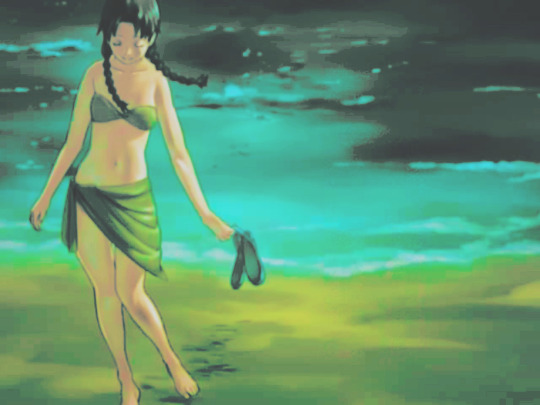

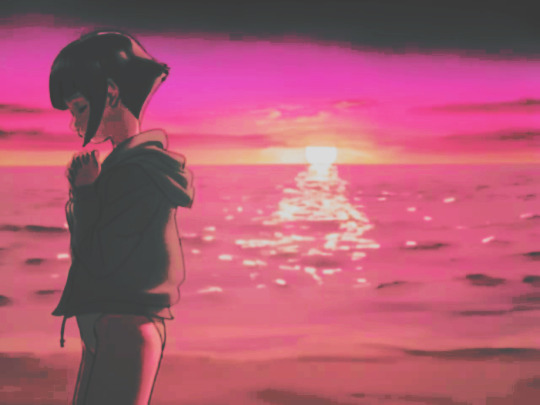
𝓻𝔂𝓾𝓾𝓼𝓮𝓲 流星 (𝓶𝓮𝓽𝓮𝓸𝓻) ━ 6th ending song, naruto part I
#naruto#naruto anime#TIA#ryuusei#meteor#naruto ending#sakura haruno#tenten#ino yamanaka#hinata hyuga#my edit
117 notes
·
View notes
Text

Re-uploading with a new version bc it’s thE BOY’s bIRTHDAY!✨🌈🍥🤙
#naruto#illustrators on tumblr#uzumaki naruto#naruto ending#broken youth#nico touches the walls#art by op#digital art#fan art#illustration#art#sns#naruto shippuden#procreate#naruto au#uchiha sasuke
102 notes
·
View notes
Note
"SaKuRa DeSeRvEd BeTtEr"
After she harassed and guilty tripped Sasuke since FOREVER despite him telling her clearly more than once that nor he loves her nor he has a reason to, because that's true seen how ugly she has behaved towards him.
Look I'm a fan of Sakura and also NaruSaku, I also love Naruto and Sasuke as individuals, but let's keep her accountable for the bad things she too has done.
Sasuke doesn't love her. And him staying away from someone who has EXHAUSTED him into a one-sided relationship is fair and also a consequence of Sakura's action, simple as that.
Sorry anon but I gotta disagree. Sakura has her problems but she's still one of the most morally virtuous characters in the manga. Having Sasuke- a boy grieving over his lost family- actually abandon his wife/child in adulthood is exceptionally tragic. Don't know how long you've been following me but I've made more than a couple vent posts about the way Kishi writes women specifically, and the outrageously sexist ending he wrote for them. My lil' flowers deserved way better T.T

20 notes
·
View notes
Text

﹟ team 7 𓈒 𖦹 coloring ☆
🧃。゚ Chapter 700 - Naruto Uzumaki!! 🗯
#sasuke#sasuke uchiha#naruto#naruto uzumaki#sakura#sakura haruno#sakura uchiha#team 7#naruto ending#coloring#manga coloring#naruto manga#manga panel#naruto to boruto
31 notes
·
View notes
Text
*Poorly written manga has a poorly written ending*
Naruto fandom:
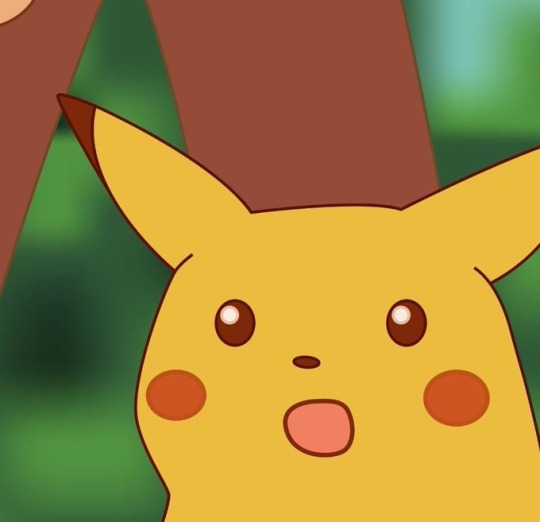
#like what did you expect#Naruto#naruto ending#look I have issues with the ending and Boruto too#but I just don’t understand how people were able to have expectations out of Naruto after the whole kaguya fiasco#like Naruto was never well written enough to begin with to deserve that much of an outrage#Naruto is not a romance manga#why do people care som much about Naruto ships that they are still complaining about it#almost 9 years after the manga ended#and the anti system aspects were never really all that well written to begin with#and it was somewhat obvious kishimoto didn’t really care all that much for it#like how did you not see this being poorly handled in the end coming#when the last 1/3 of the manga#was dedicated towards the war arc#where the main characters (sasuke included) were fighting with the system#against people who criticise it
4 notes
·
View notes
Text
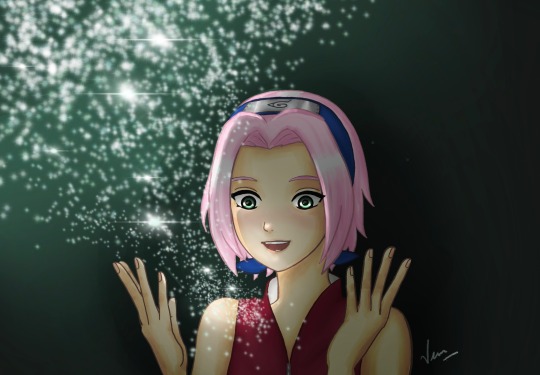
Haruno Sakura from Naruto Ending Theme 12
•
Character by Masashi Kishimoto (Naruto)
Artwork by Me
Inspiration:
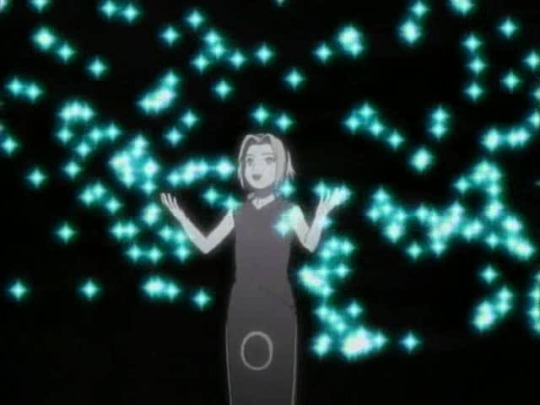

Very nostalgic to me, hope it brings pleasant memories
#naruto#naruto shippuden#sakura haruno#naruto ending#naruto ending 12#parade chaba#anime#naruto fanart#Spotify
3 notes
·
View notes
Text
one day i'l lwrite an essay about sasuke and it will be over for y'all but that day isn't today (i'm lazy)
8 notes
·
View notes
Text
Rb and tag your favorite underdeveloped or underdelivered plotline in Naruto I’m trying to see something
#mine is sakura planning to kill sasuke#she deserved to do it#also sai’s plotline#type: other#fandom: naruto#naruto#naruto shippuden#naruto shippudden#naruto ending#sasuke naruto
9 notes
·
View notes